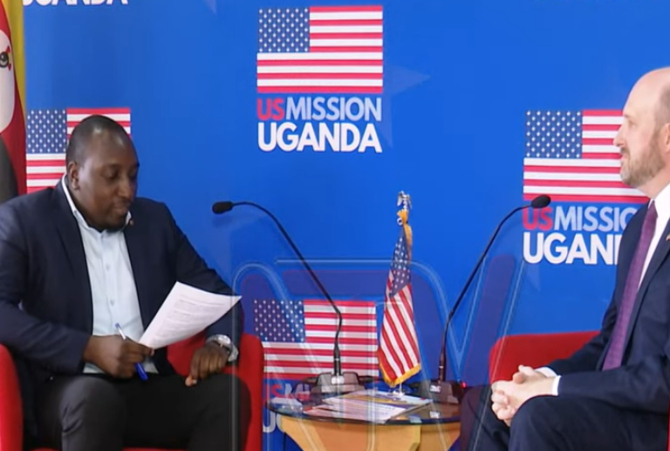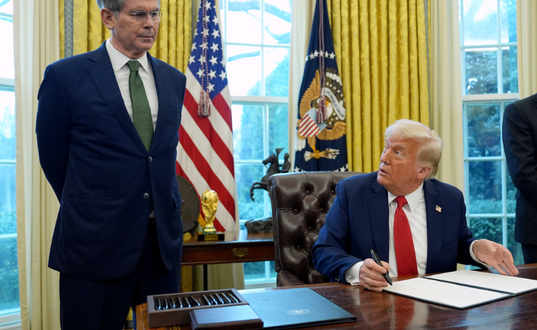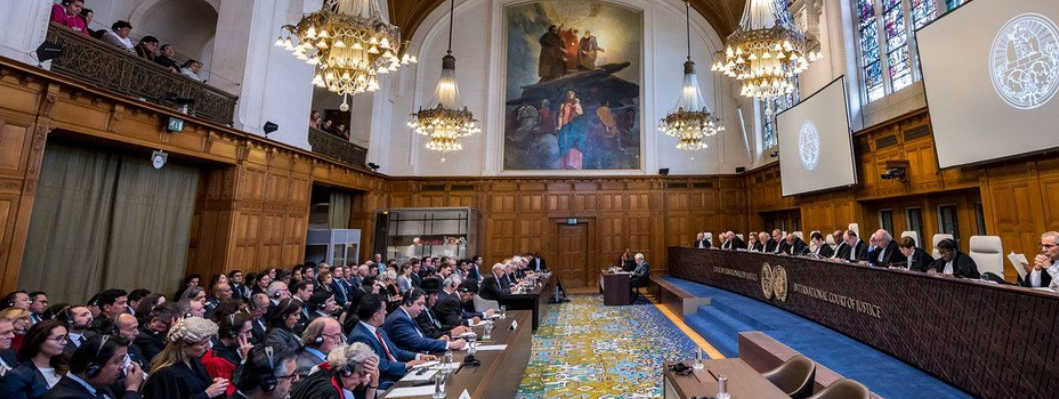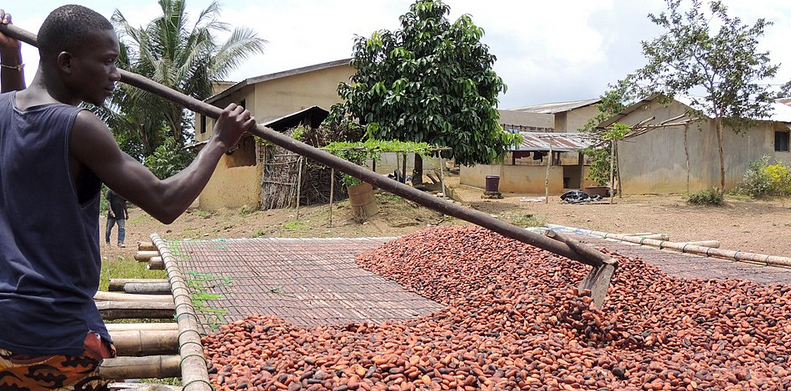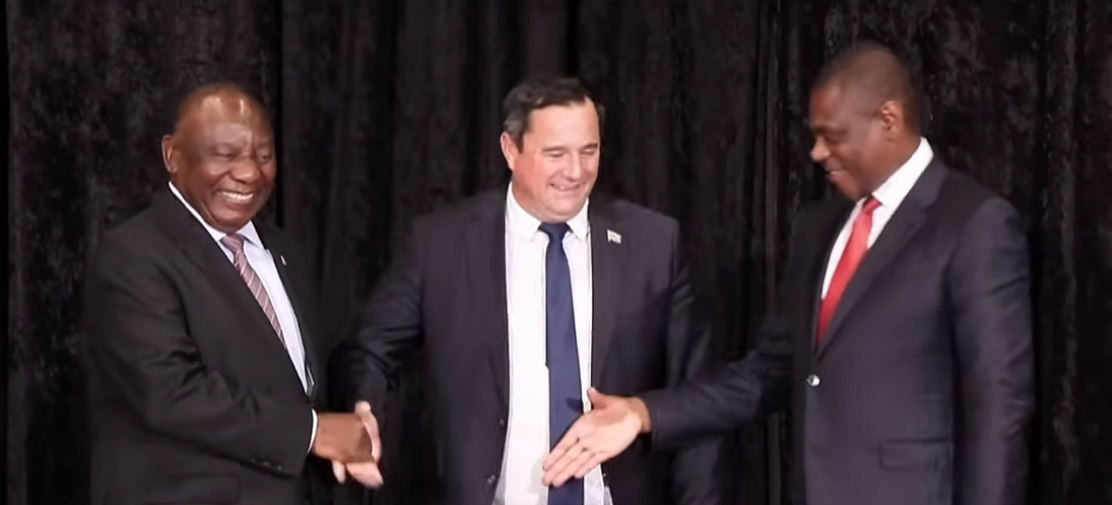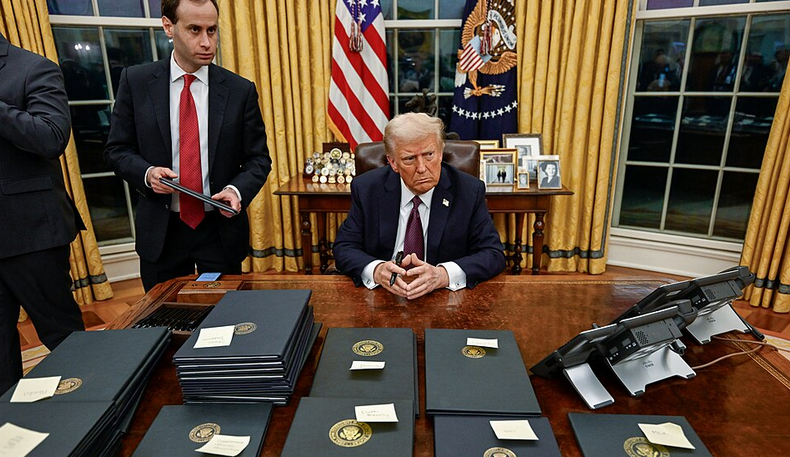Photos: YouTube Screenshots\Wikimedia Commons
On Wednesday this week, the AGORA Public discourse forum steered by two renowned civil rights lawyers and activists; Agather Atuhaire and Godwin Toko, held a X (formerly Twitter) space where they hosted the ambassador of the United States of America in Uganda, William W. Popp, to talk about, among other issues, commemoration of the human rights day. It was a smooth question and answer discussion where many Ugandans sent in their questions and the ambassador succinctly answered.
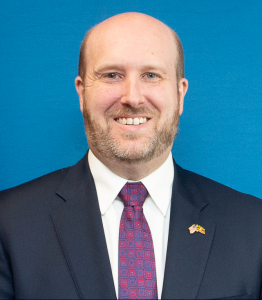
However, one of his ambiguous answers which captured my attention was when he was asked why the USA government keeps coddling the Ugandan government which is notorious for human rights abuses. His answer, to quote him without changing anything, was “Ultimately, what will resolve the human rights issues in Uganda are Ugandans. What the US mission Uganda does, as with Africa Growth Opportunity Act (AGOA), is statutory assessment made of the Ugandan situation and a pronouncement is done.”
I did not have the time to respond to him in the form of a follow up question since I was busy but I guess he reads this wonderful newspaper and will read my response which is informed by my little knowledge of the International Human Rights Law, institutions and mechanisms.
Whereas it is indubitably true that Ugandans are responsible for extricating ourselves from the 1986 pandemic in which we are encapsulated, it is important not to forget that that would only be possible in a democratic process. But do Ugandans have a say in a presidential election which is always marred by violence and high scale rigging? Democracy depends on strong and independent institutions coupled with rule of law–as an ingredient. These ingredients are, on the face of it, absent. Even a village champion knows very well that militarization and monetization of politics can never deliver a peaceful transfer of power through elections.
The judiciary that is tasked with enforcing the human rights laws have always recalcitrantly failed to stay the proceedings when issues of rights abuse are brought up in court, and the judicial service commission in lieu of punishing such errant judicial officers, has always recommended the same for promotion. The Uganda Human Rights Commission, pursuant to its constitutional mandate, is in coma. So what next?
International law provides for extraterritorial obligation of states over other states when it comes to issues to do with human rights. If the democratic process through which Ugandans are constitutionally tasked to dispose off a useless government and bring in another has failed, other state parties to numerous international statutes like International Convcenant on Civil, Political and Cival rights, Convention Against Torture, Universal Declaration on Human Rights among others, parties may hold Uganda accountable for violating human rights of citizens. States like the US are duty-bound to support one another and cooperate in the realization of all peoples’ rights, not rhetoric statements and other ineffectual disciplinary tactics that are once in a while thrown here and there. The USA government and other partners know very well that the support in form of financial and hardware that they export to Uganda for military and Police use, are used to commit and facilitate serious violation of human rights and therefore their position on the Arms Trade Treaty is key! We have been in those dungeons and we can tell the tools of torture that the security persons use there.
One of the absolute norms of the international law is the prohibition of torture. There is no excuse for Uganda government to resort to torture of critics. The advantage of this absoluteness is the universal jurisdiction and individual criminal responsibility at the international level, which means that security officers in the UPDF, Prisons and Police who directly torture and those that bear command responsibility can be arrested or extradited to any state where victims of torture have reported their cases and be prosecuted.
Throughout the US diplomatic relations with Uganda, this has never happened. There are very many torture victims who flee Uganda and run to the USA or Europe and report torture through the recognized external institutions and mechanisms. We only see our tormentors on the territory of the USA or Europe enjoying diplomatic privileges despite obligations to arrest and prosecute them.
Also, during the meeting with the Chinese envoy on 23.11.2023, the Rt. Hon. Deputy speaker of parliament, Thomas Tayebwa, spewed some unfortunate comments criticizing western powers over their interfering with the internal matters of China’s human rights records in Hong Kong, Tibet–saying these are internal matters that can be handled by China. Former comrade during the Reform Agenda, I hope that you now know, from my succinct explanation above, that protection of human rights and fundamental freedoms can in no way be considered an interference in a state’s internal affairs.
Despite the geopolitical expediency of the US government in the great lakes region, this is the time for the US to identify fairly democratic nations as reliable partners in fulfilling their interests, other than depending on brutal rulers who have no respect for a democratic process, human rights and rule of law. Your dependency on them gives them wings which they use to proliferate our oppression, and that is how we, the oppressed, legitimately call you out that your interests cannot be at the expense of our lives and welfare!

Kakwenza Rukirabashaija, Exiled Novelist and LLM student of Public International Law at Europa Universtät. info@kakwenza.de
|
|
KAKWENZA RUKIRABASHAIJA Lawyer and Multi-Award Winning Novelist Email: info@kakwenza.de. LLB Cavendish Law School. LLM International Public Law, Human Rights Law, Refugee Law & Humanitarian Law Europa Universität Whatsapp/Signal: +447958104814 |
